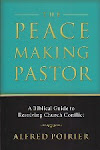Tuesday 24 June 2008
Inclusive or Confused
In this case Karl Hand, pastor of the Metropolitan Community Church, "the home of inclusive Christianity" has a beef with the pope. That doesn't tell you a lot. I disagree with official Catholic doctrine in several places.
But check out who the pastor of the Metropolitan Community Church gangs up with to pick on the pope. A coalition of religious, atheist, gay and lesbian groups, including: Socialist Alliance, Resistance, Atheists Sydney and the Raelians. Fuller details here.
Karl Hand feels more comfortable rioting with a coalition of sects and groups vehemently opposed to Christianity.
That tells you a lot about the Metropolitan Community Church.
Agreeing with Heinlein

I was born too late to appreciate Robert A. Heinlein's work. I get too fussy about things like characterisation and plot.
Coming into Science Fiction when it has matured makes it harder to appreciate the masters who helped make it what it is.
Heinlein illustrates, for me, the contrast between idea driven science fiction on the one hand and character or plot driven fiction on the other. (although a good story does it all together) I find his manipulation of plot and assertions of 'the way it is' somewhere between flippant and arrogant.
Perhaps one could define a master as someone who breaks all the rules of writing (show don't tell etc etc etc) and gets away with it.I also disagree quite strongly with Heinlein's conclusions about the way the world is. The meaning of life, the universe and everything, if you like.
So it was quite a shock to see within a couple of chapters some arguments and ideas that I particularly agree with. To whit:In the mouth of Lazarus Long, who at this point in the novel is being portrayed as a sage,
"Never mind computers. Ira, the most sophisticated machine the human mind can build has in it the limitations of the human mind. Anyone who thinks otherwise does not understand the Second Law of Thermodynamics." Time Enough For Love p29 1982 reprint.This relates to one of the philosophical problems that people who are strict evolutionists have. How do you inject meaning and purpose, any sense of value into a world defined (by the evolutionary assumptions to have none) The common answer is that we create value, but Heinlein's argument applies equally to this question. It is impossible for the product to be greater than the system that created it. If human life is the result of meaningless happenstance, it can have no meaning.
Also:"To figure out the basic questions about this world it would be necessary to stand outside and look at it. Not inside. no not in two thousand years, not in twenty thousand." Time Enough For Love p39 1982 reprint.
This statement seems almost anti-enlightenment in its assertion of the limit to human understanding. While Heinlein was probably not thinking along these lines (and would perhaps be horrified by my use of his words) this statement agrees with my understanding of the inability of the fallen human creature to fully understand himself without input from the creator. This idea stands in stark contrast to the enlightenment and modern ideas of the progress of human knowledge (and in particular scientific inquiry). It is also quite different to the postmodern rejection of authority and meta narrative which actually makes an absolute authority out of personal subjective understanding.I read Heinlein because I like Science Fiction, because I respect his lofty position amidst the great authors, and because I like to understand the ideas that I disagree with.
So it's felicitous to find something in his work that I can actually agree with, even if I would come to a different conclusion at the end.Monday 23 June 2008
Did They Really Mean to Say That?
I'm not really sure they meant what they said. I'm assuming they didn't. Looking in the Winter PRAC 08, on a case study on the Lifewell ministry in Adelaide I read this:
"While we could pray and express genuine concern, we realised we weren't equipped to offer the deeper, tangible care people needed." (top of the middle column page 04)
Is there something deeper than prayer?
Is meeting the tangible needs actually deeper than a prayer ministry?
I would say it is the other way around. Counselling and haircuts and massages are the easy part. The hard part, the deeper part is to connect with the spiritual issues and to bring gospel light and deeper faith into the crisis. To pray and trust in uncertainty.
I'm assuming they meant to contrast genuine (but inactive) concern with tangible care. I'm assuming this because the other more scary conclusion is that this whole holistic ministry idea is perhaps driven, at least in part, by a lack of confidence in the gospel and the power of God at work in prayer.
I prefer to think the pen just slipped a little.
Friday 20 June 2008
The Wrong to Die
Do the people trying to change our society's values respect the structures and fabric of our society?
Isn't it too harsh to lay criminal charges against someone who assists a suicide (whatever that means)?
Without getting into all the rights and wrongs of euthanasia. Without trying to get into this particular case. Let's just have a look at the attitude the activists display toward the laws of the countries we live in.
A Sydney Morning Herald article discusses the guilty verdict brought against two women who played a part in the death of their husband and friend. The following comment comes from a significant person in the euthanasia camp:
Outside the court, Dr Nitschke said that his organisation Exit International would now be warning its members to "tread very carefully" and hold workshops for people with Alzheimer's disease to inform them about how to get around the implications of today's decision.
The courts have laid down a ruling, and will we abide by that? No, we'll show people how to get around it.
Wrong End of the Stick

Water is plentiful. There's lot's of it. And we can reuse it.
Water is the ultimate plentiful, renewable resource. We live at the bottom of a huge recycling system.
Now, I care about the environment, but I still think you've got to get things right. I can't believe it when an environmental spokesperson says things like this in the Sydney Morning Herald
"Water is a scarce resource that is only going to become more scarce with climate change and we must readjust our habits on a permanent basis, not just when dam levels get low."
Water is not a scarce resource. It is plentiful. Some theories suggest that's why there is life on earth, plentiful water. It is unevenly distributed, for sure. In some places it is scarce but Sydney is not one of them.
And how will climate change affect Sydney's water? Isn't the dominant theory that the polar ice caps will melt and there will be more water in the global water system, that ocean temperatures will rise, wouldn't that make Sydney more tropical, more wet?
I'm not sure why environmentalists say things like this.
* Is it all too emotional to think clearly?
* Do you have to follow the party line to show how environmental you are?
* Do you have to overstate the case in order to get heard?
Or is it all three feeding back into a great sensationalist loop?
I don't know. All I know is that common sense sometimes goes out the window when we start talking about climate change.
There are some issues with water use:
1. Waste. We are used to luxury. For too long we have just poured water down the drain. That should stop.
 2. Inefficient Collection. In the early days the policy was to discourage private water collection in order to subsidise the public infrastructure. When it rains on Sydney, most of it is unused. So get a tank.
2. Inefficient Collection. In the early days the policy was to discourage private water collection in order to subsidise the public infrastructure. When it rains on Sydney, most of it is unused. So get a tank.3. Demographics. Infrastructure (dams etc) has not been increased at the same rate as population growth. So get a tank.
So, I'm all for permanent changes in water use. Reuse water - wash the car on the lawn etc. Reduce water - save up flushes etc. Recycle water - use grey water to flush the loo.
But I also think we have to get the thing right.
Water is plentiful, but it's also valuable, in fact essential, so let's use it wisely.
Friday 13 June 2008
Do Your Research








